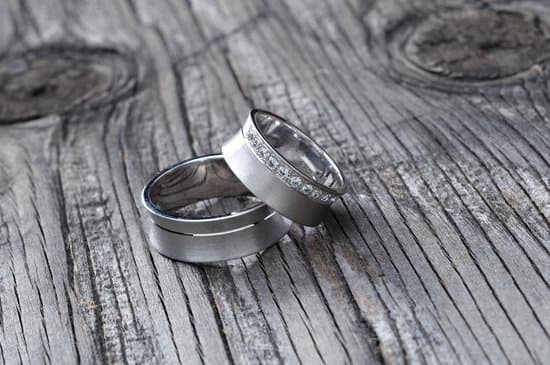Is it permissible for a Muslim to attend a Christian wedding? This question often arises in diverse religious settings, and the answer lies in understanding the beliefs, traditions, and cultural respect within each faith. In this article, we will explore the delicate balance of attending a Christian wedding as a Muslim, delving into the significance, challenges, and etiquette involved.
Islamic beliefs and traditions hold significant value to Muslims around the world. From daily prayers to fasting during Ramadan, Islamic practices are deeply rooted in faith and cultural customs. Understanding Islamic beliefs is essential when considering participation in events that are outside of one’s own religious affiliation.
Similarly, understanding Christian beliefs and traditions is crucial when approaching the topic of attending a Christian wedding as a Muslim. The sacrament of marriage holds deep significance in Christianity, with its own set of rituals and customs. By exploring both Islamic and Christian faiths and their respective wedding ceremonies, we can gain insight into the similarities and differences between these two religions.
Understanding Christian Beliefs and Traditions
Christian beliefs and traditions are rooted in the teachings of Jesus Christ and the Bible. Christianity is one of the largest religions in the world, with various denominations and sects, each with their own specific beliefs and traditions. Some key Christian beliefs include the belief in one God, the Trinity (Father, Son, Holy Spirit), salvation through faith in Jesus Christ, and the importance of love, compassion, and forgiveness.
When it comes to weddings, Christian ceremonies often involve religious rituals such as exchanging vows, prayers, readings from the Bible, and blessings from a priest or minister. The wedding ceremony is seen as a sacred union between two individuals before God and is typically celebrated with family and friends. The reception that follows usually includes customs such as cutting the wedding cake, toasts, speeches, and dancing.
The question of whether a Muslim can attend a Christian wedding has sparked much discussion. According to Islamic teachings, Muslims are encouraged to show respect towards people of other faiths. Attending a Christian wedding can be viewed as an opportunity to participate in a significant event for friends or family members while also promoting interfaith understanding and harmony.
| Christian Beliefs | Wedding Traditions |
|---|---|
| Trinity (Father, Son, Holy Spirit) | Religious rituals such as exchanging vows and prayers |
| Salvation through faith in Jesus Christ | Blessings from a priest or minister |
| Love, compassion, forgiveness | Cutting the wedding cake |
Exploring the Similarities and Differences Between Islamic and Christian Wedding Ceremonies
When it comes to exploring the similarities and differences between Islamic and Christian wedding ceremonies, it’s essential to understand the traditions and beliefs that shape these two religious practices. Both Islamic and Christian weddings are steeped in rich cultural heritage, and they carry different rituals, symbolism, and meanings.
Similarities in Wedding Ceremonies
Despite the obvious differences between Islamic and Christian wedding ceremonies, there are several similarities that can be found. Both traditions place a strong emphasis on the union of two individuals in the presence of their loved ones. Additionally, both ceremonies involve vows or promises made by the couple to each other, as well as blessings from religious figures or leaders.
Differences in Wedding Ceremonies
One notable difference between Islamic and Christian wedding ceremonies is the format and structure. In Islamic weddings, there is an emphasis on simplicity, modesty, and adherence to religious customs such as the reading of Quranic verses. On the other hand, Christian weddings may feature elaborate decorations, music, hymns, and a variety of symbolic gestures such as exchanging rings.
It’s important for Muslims attending a Christian wedding to be aware of these differences in order to properly respect and understand the significance of various elements within the ceremony. Understanding these traditions can help foster cultural sensitivity when attending a wedding outside of one’s own faith community.
The Significance of Attending a Christian Wedding for a Muslim
Attending a Christian wedding as a Muslim can be a significant and meaningful experience, as it provides an opportunity to celebrate love and unity across different faiths. Here are some reasons why this may be important:
- Interfaith solidarity: Attending a Christian wedding allows Muslims to show support for their friends or family members who are of a different faith. It is a way of fostering unity and understanding across religious boundaries, and demonstrating that love knows no bounds.
- Cultural exchange: By participating in a Christian wedding ceremony, Muslims can gain insight into the customs, rituals, and traditions of Christianity. This can help foster cultural exchange and broaden their understanding of different religious practices.
- Personal connection: Attending the wedding of a Christian friend or family member can strengthen personal relationships and demonstrate mutual respect for each other’s beliefs. It shows that despite having different faiths, people from diverse backgrounds can come together to celebrate important milestones in each other’s lives.
It’s important to note that while attending a Christian wedding as a Muslim can hold great significance, it is essential to approach the situation with respect and cultural understanding. This means being mindful of the religious practices and customs observed during the ceremony, as well as being open-minded towards different belief systems. Ultimately, attending a Christian wedding as a Muslim presents an opportunity to embrace diversity and celebrate love across cultures and faiths.
The Potential Challenges and Controversies of Attending a Christian Wedding as a Muslim
Attending a Christian wedding as a Muslim
Another challenge
In addition, attending a Christian wedding can also present logistical challenges for Muslims, especially when it comes to participating in certain rituals or customs that may conflict with Islamic practices. For example, if the wedding ceremony involves any form of religious activity that goes against Islamic beliefs, such as praying in the name of Jesus Christ or consuming alcohol, Muslims may feel uncomfortable or conflicted about how to navigate these situations while still showing respect for the couple getting married.
| Potential Challenges | Controversies |
|---|---|
| Compromising religious beliefs | Criticism from Muslim community |
| Cultural and social pressure | Logistical challenges |
The Importance of Respect and Cultural Understanding in Diverse Religious Settings
In today’s diverse and interconnected world, it is not uncommon for individuals from different religious backgrounds to interact with one another in various social settings, including weddings. When it comes to the question of whether a Muslim can attend a Christian wedding, it is essential to underscore the importance of respect and cultural understanding in such diverse religious settings.
For Muslims, respecting the customs and traditions of others is an integral part of Islamic teachings. The Quran emphasizes the value of showing kindness and respect to people of other faiths, promoting peaceful coexistence and understanding. Attending a Christian wedding as a Muslim provides an opportunity to demonstrate this respect and goodwill towards friends or family members who are celebrating this significant event in their lives.
Furthermore, cultural understanding plays a vital role in fostering harmonious relationships between individuals of different religious backgrounds. By participating in a Christian wedding ceremony, Muslims can gain firsthand insight into the beliefs and traditions of their Christian counterparts. This experience can lead to greater empathy, tolerance, and mutual respect between people from diverse religious communities. It also provides an avenue for constructive dialogue and the exchange of cultural knowledge, ultimately contributing to stronger interfaith relations within society.
Overall, attending a Christian wedding as a Muslim presents an opportunity to embody the values of respect, cultural understanding, and open-mindedness that are essential for creating cohesive and compassionate communities. Instead of viewing religious differences as barriers, embracing diversity can lead to enriching experiences that promote unity and solidarity across various faith traditions. Ultimately, navigating diverse religious settings with grace and understanding can contribute to building bridges between different cultures and celebrating love across boundaries.
Dispelling Common Misconceptions About Muslims Attending Christian Weddings
Understanding the Misconceptions
There are several misconceptions surrounding the idea of a Muslim attending a Christian wedding. One common misconception is that it goes against Islamic beliefs for a Muslim to participate in the rituals and ceremonies of another faith.
This belief leads to the assumption that Muslims should not be present at any non-Muslim religious event, including weddings. However, it is important to understand that Islam promotes tolerance and respect for other faiths, as long as participating does not compromise one’s own beliefs.
The Reality
In reality, there is no explicit rule in Islam that prohibits Muslims from attending a Christian wedding. In fact, many scholars emphasize the importance of fostering good relations with people of other faiths. Attending a Christian wedding can be seen as an opportunity to celebrate love and unity across different religious traditions. It can also be a way to show support and respect for friends or family members who are getting married, regardless of their faith.
Promoting Understanding and Respect
Attending a Christian wedding as a Muslim displays an understanding and respect for different religious traditions. It provides an opportunity for cultural exchange and can help strengthen relationships between individuals of different faiths. By dispelling the misconception that Muslims cannot attend Christian weddings, we promote interfaith dialogue and demonstrate that love and celebration transcend religious boundaries.
Practical Tips and Etiquette for Muslims Attending a Christian Wedding
Attending a Christian wedding as a Muslim
First, it is important to dress modestly in accordance with Islamic traditions. Women should consider wearing a hijab or headscarf, and both men and women should choose attire that covers their arms and legs. When selecting clothing for the event, it is also important to choose outfits that are appropriate for a formal occasion such as a wedding.
When participating in the wedding ceremony itself, it is crucial to be respectful of the Christian customs and traditions. This may include standing or sitting when prompted, participating in prayers or hymns if comfortable, and refraining from any actions that may be considered disrespectful within the Christian faith.
It is also important to be mindful of dietary restrictions as a Muslim attending a Christian wedding. While most weddings offer some form of food or refreshments, it is wise to communicate any dietary restrictions or preferences with the hosts beforehand. Additionally, if alcohol will be served at the event, it is acceptable for Muslims to politely decline without causing offense. The key is to approach these situations with respect and understanding for different practices within diverse religious settings.
Personal Experiences and Perspectives From Muslims Who Have Attended Christian Weddings
Attending a Christian wedding as a Muslim can lead to a variety of personal experiences and perspectives. For many Muslims, attending a Christian wedding is an opportunity to celebrate love and unity across different faiths. It also provides an understanding and insight into Christian traditions and customs. Here are some personal experiences and perspectives from Muslims who have attended Christian weddings:
- Embracing cultural diversity: Many Muslims who have attended Christian weddings speak about the importance of embracing cultural diversity and respecting the traditions of others. They view attending a Christian wedding as a way to learn about different customs and celebrations, promoting unity and understanding among diverse religious communities.
- Feeling welcomed and included: Some Muslims share their positive experiences of being warmly welcomed and included in the Christian wedding ceremony by the couple and their families. This sense of inclusivity fosters feelings of acceptance and respect, creating lasting memories of unity and love.
- Navigating potential challenges: While some Muslims have had positive experiences attending Christian weddings, others may face challenges or controversies due to differing beliefs. It is important for individuals to navigate these challenges with patience, understanding, and respect for both their own faith and the beliefs of others.
These personal experiences demonstrate the significance of attending a Christian wedding for a Muslim, as well as the potential challenges that may arise. Whether it’s embracing cultural diversity, feeling welcomed and included, or navigating potential challenges, each individual’s experience provides valuable insights into finding common ground and celebrating love across cultures and faiths.
Conclusion
In conclusion, the question “Can Muslim Attend Christian Wedding?” is one that can be answered with careful consideration of Islamic beliefs and traditions, as well as respect for Christian beliefs and practices.
While there may be differences between Islamic and Christian wedding ceremonies, it is important to recognize the significance of attending a Christian wedding for a Muslim. By participating in such an event, Muslims have the opportunity to show support for their friends or loved ones who are getting married, and to celebrate love across cultures and faiths.
It is crucial to acknowledge that attending a Christian wedding as a Muslim may pose potential challenges and controversies. However, it is essential to approach these situations with respect and cultural understanding. By dispelling common misconceptions about Muslims attending Christian weddings, individuals from both faiths can find common ground and foster mutual respect.
Moreover, by sharing personal experiences and perspectives from Muslims who have attended Christian weddings, we can gain insight into the importance of respecting diverse religious settings. Practical tips and etiquette for Muslims attending a Christian wedding can also help navigate through any potential differences or uncertainties. Overall, the conclusion draws attention to the significance of finding common ground and celebrating love across cultures and faiths, regardless of religious differences.
Frequently Asked Questions
Can Christians Attend a Muslim Wedding?
Christians can certainly attend a Muslim wedding. In fact, it is a great way to show respect and support for friends or family members who are getting married. It’s important to be culturally sensitive and respectful of the traditions and customs of the Muslim wedding ceremony.
Can You Have a Muslim and Christian Wedding?
It is possible to have a Muslim-Christian wedding, but it may require careful planning and consideration of both religious traditions. Interfaith weddings often involve finding common ground between the two faiths and being respectful of each other’s beliefs.
It’s important for couples to have open and honest conversations about their religious practices and how they want to incorporate them into their wedding ceremony.
Can a Muslim Attend a Wedding During Ramadan?
While it is not forbidden for a Muslim to attend a wedding during Ramadan, it is generally advised to avoid attending lavish celebrations that may distract from the spiritual focus of the month. However, simple and modest weddings or receptions may be more appropriate during Ramadan.
Ultimately, it depends on individual circumstances and personal choices within the bounds of Islamic teachings.

I have been involved in marriages for over 20 years helping couples and singles understand more about them.





